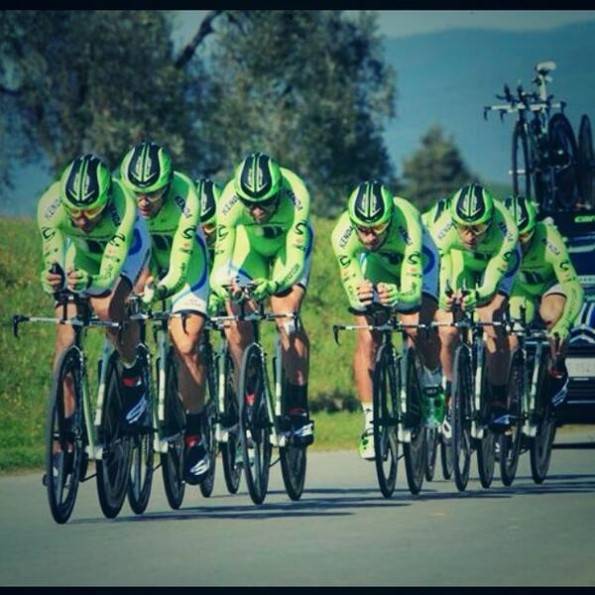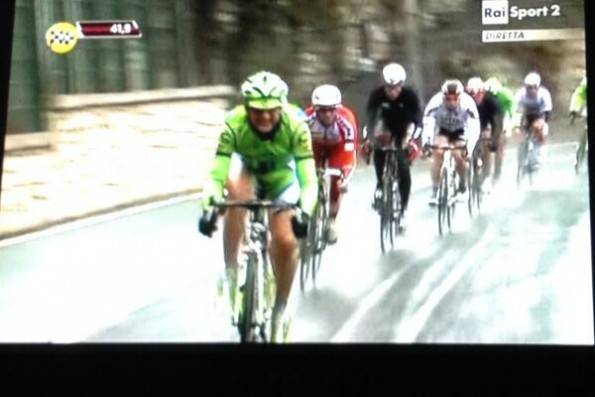Here’s the third and final part of our recent chat with Alan. We’ve covered his early years in part one, his off-bike activities in part two and now we’re going to chat about training, particularly time-trialling. Meeting Marangoni
G4: It would be fair to say you’re a good time-triallist and it’s important for teams with Grand Tour ambitions to be competitive in team time-trials.
A Marangoni: It’s an important aptitude and not one that everyone has. Even we need to improve. When I was younger I rode on the track which I think helps. I won the under-23 national time-trial championships and three years’ ago I was third. I’m not bad.

Sore legs moments…
— ALAN MARANGONI (@ALANMARANGONI) 12 Mars 2014
G4: In order to perform well in team time-trials, it’s necessary to have some riders who can lead and guide the others. Now, of course, you have Sebastian Weber as your trainer who also guides world champion Tony Martin.
AM: He gives big importance to the time-trialling discipline and, if we all improve, we will be able to give more help to our team leader. Of course, that’s particularly important towards the end of a race or stage where we want to keep him safe upfront.
G4: In Grand Tours, if there’s a team time-trial early on and your team doesn’t turn in a good performance, your leader is immediately on the back-foot and at a psychological disadvantage?
AM: Exactly, if the team performs well, he’s in with a chance. Also a lot of our work involves driving the peloton forward for a long time on the front to bring back breakaways. It’s really hard work.

When Peter won stage seven in last year’s Tour de France, we pulled the bunch all day long for over 120km. We were strong at the finish. It was a big satisfaction because we won.
G4: Ah yes, it’s nice to be part of winning team.
AM: You do feel part of the win. Without our work, he can’t win.
G4: Finally, you’re a tall guy and I’m sure your team-mates enjoy riding in your shelter. Yesterday, you said you enjoyed eating out. Do you find it easy to maintain your racing weight?
AM: It’s not easy. I tend to put on 2-3 kgs in off-season, but quickly lose it again once I start to train and race. When you’ve a few kilos more, you really feel it in the mountains. You can eat less and ride more to lose weight. It’s important to watch what you eat. I eat a lot at home. Sometimes I eat too much then I just ride more.
Push it to the limit, give it all you got, and the day the ride stops, you’ll be at peace with the world, but especially with yourself…
— ALAN MARANGONI (@ALANMARANGONI) 21 Janvier2014
And on that note, Alan, thank you for your time and good luck to you and the team on those cobbles!
Links: Part one, Part two G4 on Facebook




No Comments
Leave a comment Cancel